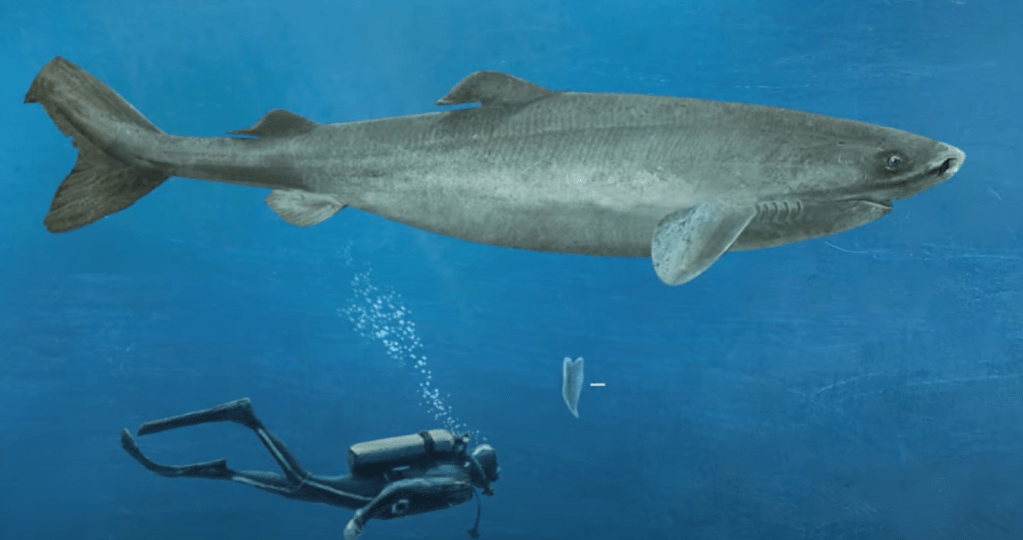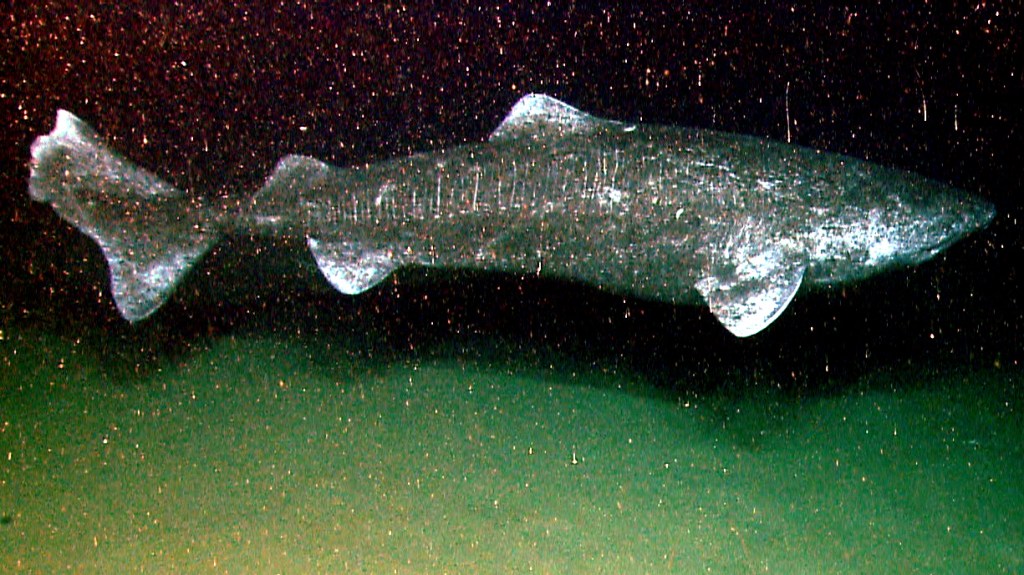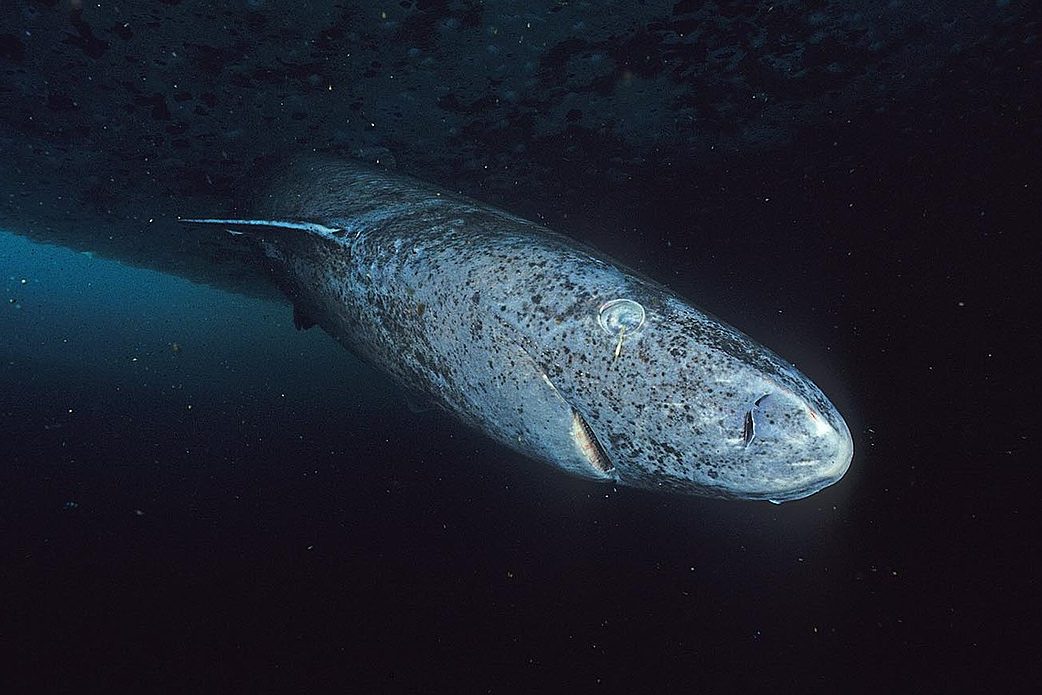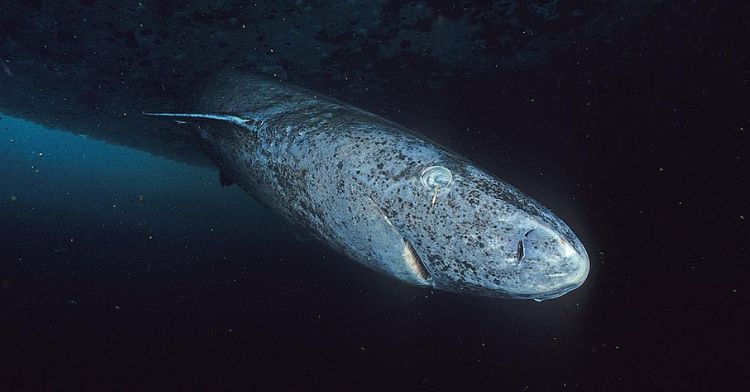A group of marine life researchers were surprised when they found a shark off the coast of Belize that could only be described as “really, really, old.” That’s because the animal was a Greenland shark, which can live to be over 500 years old. While the exact age of the fish was unclear, it was still a very rare find. Typically, these sharks prefer the Arctic to warmer waters.
“It was just very surprising and confusing,” said Devanshi Kasana, Ph.D. candidate at the Predator Ecology and Conservation lab at Florida International University, according to NPR. “As soon as it entered our field of vision, we saw a black figure that was getting bigger and bigger. When it came to the surface, none of the crew with all of their combined fishing experience had seen anything like that.”

What makes researchers believe Greenland sharks can live up to 500 years old? Scientists aren’t exactly sure, but they believe it might have something to do with the frigid waters they live in. The National Oceanic and Atmospheric Administration says it’s possible that these animals age slowly because of their lethargic metabolisms, which could be the result of a colder climate. They don’t even finish puberty until somewhere around the age of 100!

Another thing that was unusual about Devanshi and her team’s catch was that their setup was not geared toward this type of shark at all. In fact, the waters they were exploring were shallower than these creatures typically like to swim. However, it’s possible that the shark could have been hanging out in one of the area’s drop-offs.

“It slopes suddenly and the depth goes really deep really fast,” Devanshi explained, adding, “If we were to catch another individual it would be sheer luck, we don’t set our lines in a way that targets Greenland sharks.”
Not wanting to accidentally injure the rare animal, the scientists refrained from any tagging. However, they did take a picture before releasing the shark back into the water.
Watch the video below to learn more about the intriguing find!
You can find the source of this story’s featured image here.
Want to be happier in just 5 minutes a day? Sign up for Morning Smile and join over 455,000+ people who start each day with good news.



